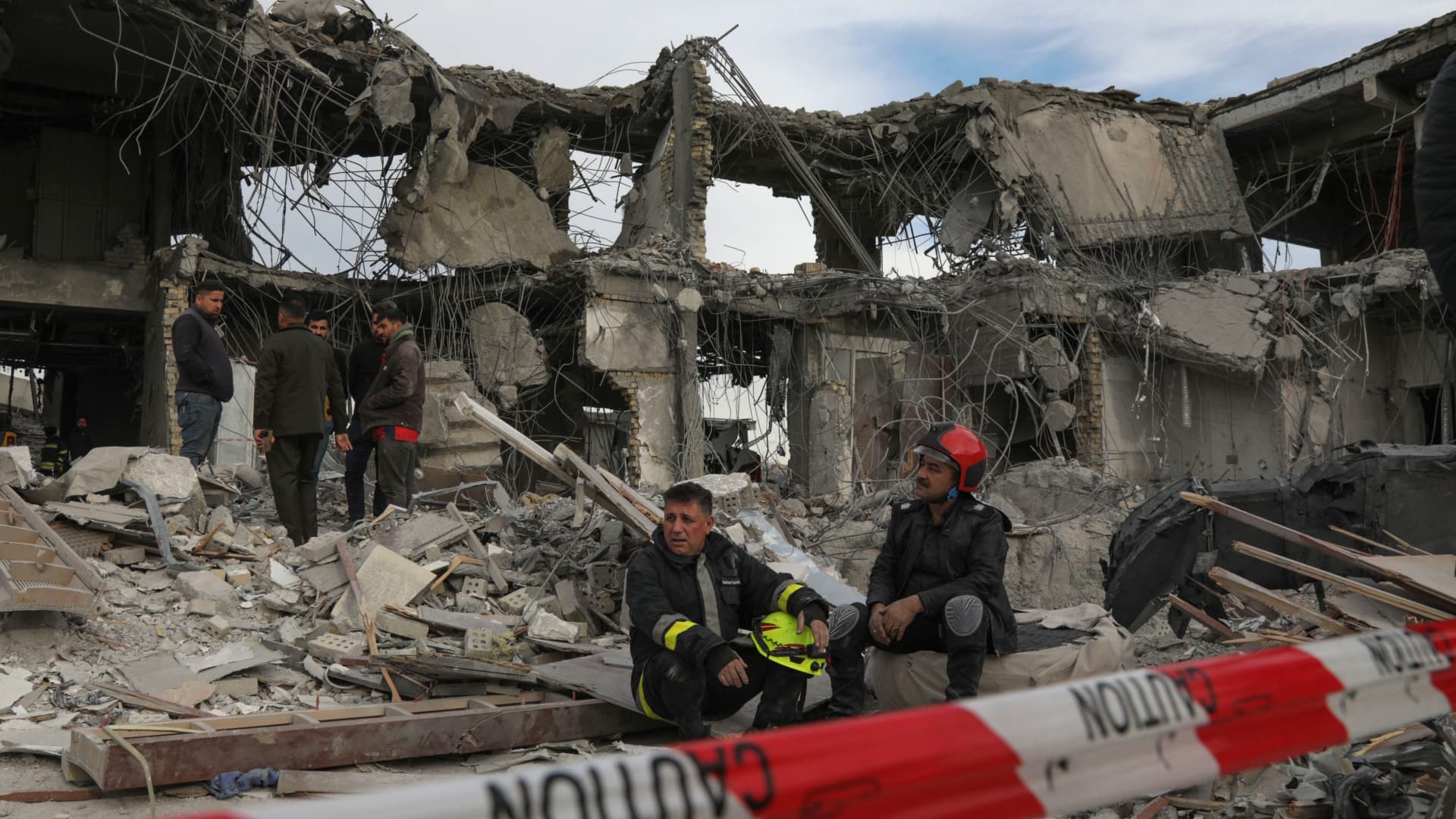
- Iran's recent missile and drone strikes on targets in Syria, Iraq and Pakistan may not have been directly related to Israel's war in the Gaza Strip but they still revealed an intent to send a clear message, analysts told CNBC.
- Concern remains that any miscalculation could trigger expansion of war in the region.
- "No question, this is a tinderbox ... I expect that this conflict is only going to escalate further," Eurasia Group's Ian Bremmer said.
Iran's recent missile and drone strikes on targets in three countries — Syria, Iraq and Pakistan — may not have been directly related to Israel's war in the Gaza Strip but they still revealed an intent to send a clear message, analysts told CNBC.
"While incitement against Israel is nothing new, its recent launch against ISIS in Syria of a solid-propellant medium-range ballistic missile capable of striking Israel from Iranian territory was a historic first and a message to the Jewish state," Behnam Ben Taleblu, senior fellow at the Foundation for Defense of Democracies think tank in Washington D.C.
"Highlighting military power in the hopes of deterring adversaries has grown in importance for the regime as wars widen across the region."
Get top local stories in Philly delivered to you every morning. >Sign up for NBC Philadelphia's News Headlines newsletter.
Within 24 hours starting on Jan. 15, Iran's military forces struck what it alleged was an Israeli "spy center" in Iraq's Kurdistan region, Islamic State targets in Syria, and militants in Pakistan that it said had carried out attacks on Iran. Iraqi and Pakistani ministers vocally criticized the attacks, calling them a "violation" and vowing consequences.
Pakistan responded a day later, striking targets inside Iran that Iranian authorities say killed several people.
Money Report
While Iran's actions in Pakistan and Syria were in response to domestic security concerns, the developments upped the intensity and risk of wider escalation in a region already mired in war since Israel began its offensive against Gaza in retaliation to a Hamas terrorist attack on Oct. 7, 2023. They were also the first time Iran had deployed its military directly at any time since the Israel-Hamas war began.
"No question, this is a tinderbox. The Middle East, it's very dry and we've got a lot of sparks," Ian Bremmer, CEO of political risk consultancy Eurasia Group, said during an interview at the World Economic Forum in Davos. "And I expect that this conflict is only going to escalate further."
Iran funds and supplies forces in the region opposing Israel like Hezbollah in Lebanon, Hamas in Gaza, Shia militia groups in Iraq and the Houthis in Yemen — all of which are part of its regional proxy network and deterrence strategy as the so-called "Axis of Resistance." These forces engage more directly with Israel and even the U.S.; Iran-backed Iraqi militias fire rockets at American military bases in Iraq and Yemen's Houthis say they are in "direct confrontation" with the U.S. as they target shipping in the Red Sea in support of Gaza.
A 'wider pattern'
Iranian leaders have said they do not want a wider war, but last week's strikes served the purpose of both countering threats to its domestic security and demonstrating what it is capable of if provoked, said Ryan Bohl, senior Middle East and North African analyst at the RANE Network.
"There is an element of signaling to the United States and Israel by carrying out these strikes because they do showcase Iran's continued ballistic missile capabilities," Bohl told CNBC.
"I don't think Iran struck Pakistan deliberately to signal to the United States and Israel those capabilities because they also carried out strikes on Syria and Iraq, but it was part of that wider pattern nonetheless."

Concern remains that any miscalculation could trigger wider war; the Houthi attacks on Red Sea shipping and subsequent U.S. and U.K. strikes against Houthi positions in Yemen already represent an unwanted and unintended expansion of the war for the U.S. and its allies.
Iran's support for the Houthis and other groups, as well as its latest actions, appear to be a show of flexing its muscles as the leading country in the region standing against Israel.
That being said, some regional analysts see Iran opening itself up to greater blowback from the targets it has attacked, and diverging from a fairly consistent strategy of deploying force via its proxies.
"Iran's three strikes were a three for one. They were trying to reassert deterrence vis a vis Israel as well as terrorist groups like ISIS," Sanam Vakil, director of the Middle East and North Africa program at Chatham House, told CNBC.
"But the attacks, particularly in Pakistan, were very brazen, and showed a bit more erratic behavior, since they weren't consistent with Iran's past approaches."






